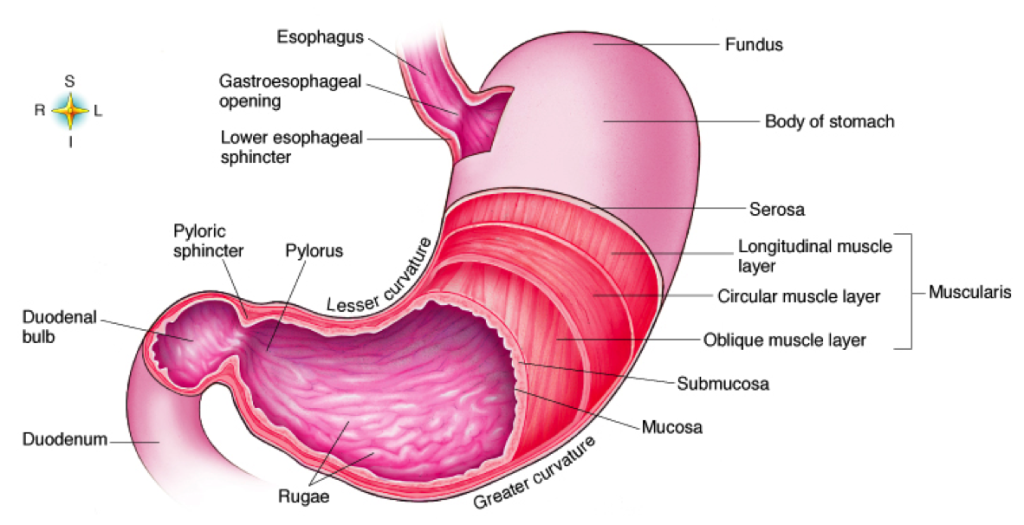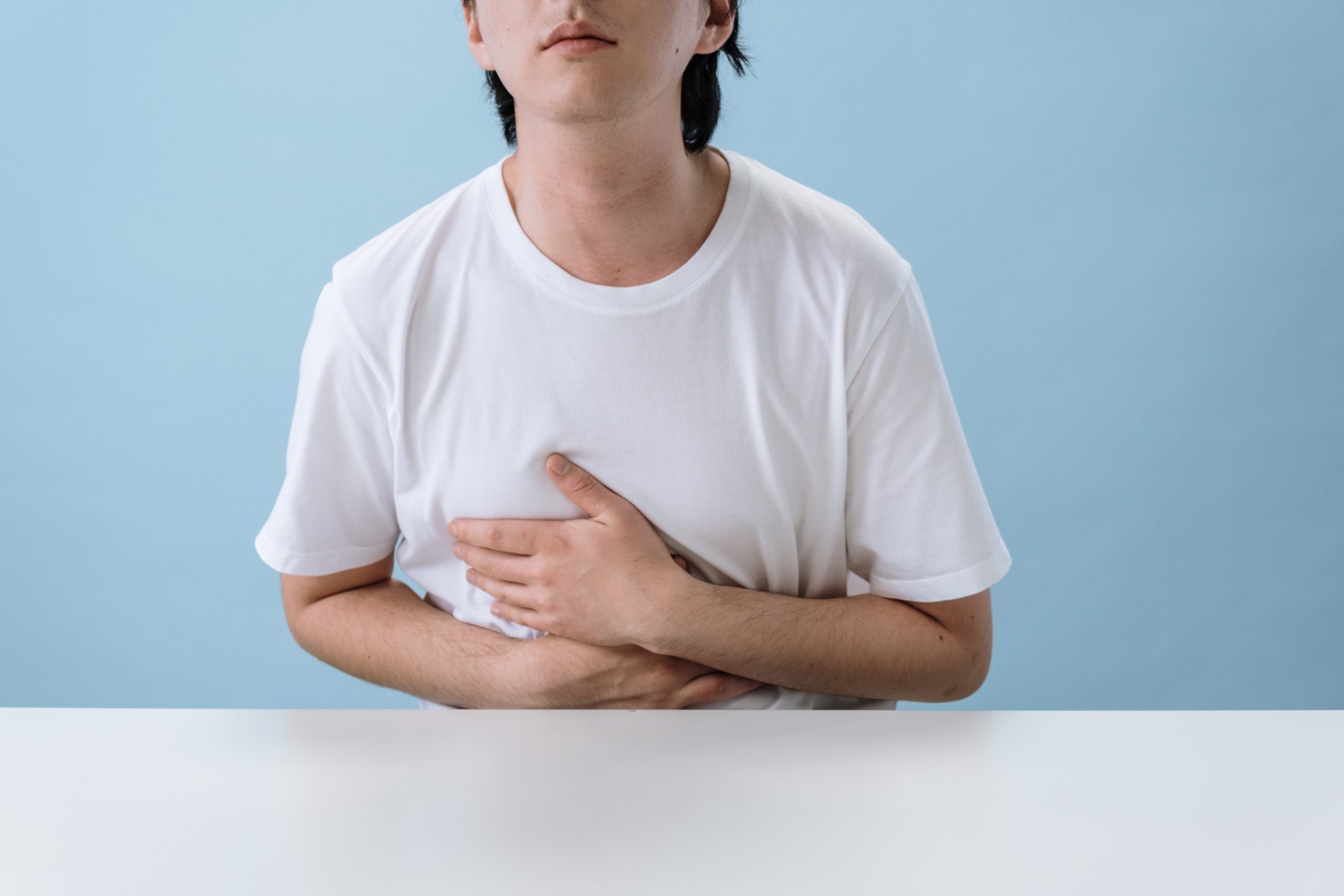Bile reflux is a condition where bile backs up from the small intestine into the stomach and can sometimes reach the esophagus. Bile is a digestive fluid that is produced in the liver and stored in the gallbladder. When food enters the stomach, the gallbladder releases bile through a duct called the common bile duct which then helps to break down fats in the food.
This is a serious case that can lead to other problems, such as ulcers and stomach cancer. If you think you might have bile reflux, then schedule an appointment with your doctor immediately.
Causes of Bile Reflux
The condition can occur when the pyloric valve does not function properly. This valve, also called the duodenal-gastric sphincter, is supposed to open only when food is passing from the stomach into the small intestine. If this valve doesn’t work properly, bile can flow back up from the small intestine into the stomach, causing bile reflux.

There are other possible causes of bile reflux, including
- A blockage in the bile ducts that prevents bile from flowing properly
- An injury to the stomach or small intestine
- A surgical procedure on the stomach or small intestine
- A condition that weakens the muscles between the stomach and small intestines, such as scleroderma
How Bile Reflux is Diagnosed
Bile reflux is usually diagnosed using a combination of medical history, physical examination, and tests.
Medical history. Your doctor will ask about your symptoms and when they began. He or she will also ask about your medical history, including any other conditions you have and any medications you take.
Physical examination. Your doctor will do a physical examination, which may include feeling your abdomen to check for any tenderness or masses.
Tests. Your doctor may recommend one or more of the following tests to confirm a diagnosis of bile reflux and rule out other possible causes of your symptoms:
- Blood test: A sample of your blood may be taken to check for an increase in a substance called bilirubin. Bilirubin is a byproduct of the breakdown of red blood cells, and an increase in bilirubin levels can be a sign of bile duct blockage.
- Stool test: A sample of your stool may be tested for the presence of bile.
- Endoscopy: A thin, flexible tube with a camera on the end (endoscope) is passed down your throat and into your stomach. This allows your doctor to directly visualize the inside of your stomach and identify any abnormalities.
- X-ray: An X-ray of your upper gastrointestinal tract may be taken to look for any evidence of bile reflux.
- pH test: A small tube (catheter) is passed through your nose and into your stomach. This tube monitors the acidity level in your stomach over a 24-hour period. An increase in stomach acidity may be a sign of bile reflux.
- Breath test: You may be asked to breathe into a tube that measures the levels of carbon dioxide in your breath. An increase in carbon dioxide levels may be a sign of bile reflux.
Treatment: How to treat bile reflux

The treatment for bile reflux depends on the severity of your symptoms and whether there is any damage to your esophagus.
Mild symptoms
If you have mild symptoms of bile reflux, your doctor may recommend over-the-counter (OTC) antacids or other medications to help relieve your pain. These include H2 blockers such as cimetidine (Tagamet) and ranitidine (Zantac) as well as proton pump inhibitors (PPIs) like omeprazole.
Moderate to severe symptoms
If you have moderate to severe symptoms of bile reflux, your doctor may recommend medications to reduce the amount of bile in your stomach. These include bile acid sequestrants such as cholestyramine (Prevalite) and colestipol (Colestid), and ursodeoxycholic acid.
Surgery
In some cases, surgery may be necessary to repair the valve between the stomach and small intestine, or to remove part of the small intestine (partial gastrectomy). Surgery is typically only recommended if medications are not effective in treating bile reflux.
Never take medication without a licensed physician’s advice. It’s important to schedule an appointment with your doctor as soon as you feel any symptoms linked to bile reflux. This way, you can treat it in its early stages and prevent more serious complications in the future.
Symptoms of Bile Reflux: How to know if you have bile reflux?
There are a few different symptoms of bile reflux that you should be aware of. Listed below are some of them:
- Heartburn. This is the most common symptom of bile reflux. It happens when stomach acids flow back up into the esophagus. You may feel a burning sensation in your chest or throat.
- Nausea. You may feel nauseous or like you want to vomit. This is because bile reflux can cause the stomach to empty more slowly.
- Vomiting. In some cases, you may actually vomit up bile. This can be a greenish-yellow color.
- Burping. You may find yourself burping more than usual. This is because bile reflux can cause excess gas in the stomach.
- Abdominal pain. You may feel pain in your abdomen or chest. This is because bile reflux can cause inflammation of the esophagus.
What is the difference between acid reflux and bile reflux?
The difference between acid reflux or GERD and bile reflux is that in bile reflux, you have the bile from the small intestine is backing up into the stomach which shouldn’t happen because the small intestine should be able to keep it down.
Once the bile goes up, it’s going to affect the PH level of the stomach. Bile is a detergent that will dissolve certain things and create inflammation, ulcer, gastritis and heartburn.
Other names for bile reflux are gastritis, alkaline reflux gastritis and biliary reflux.
Now acid reflux or GERD is a bit different. In this scenario, you have the acid in the stomach, going up to the esophagus. This is also possible in bile reflux, but the bile will come from the small intestine to the stomach and then rise up to the esophagus, which is more dangerous.
GERD can be controlled by changes in lifestyle and diet, however, bile reflux would need medications prescribed by a doctor.
One of the remedies for bile reflux is to take bile salts. What’s going to happen is that it’s going to allow for more flow of bile through the system so bile will stimulate the flow and the thinning of bile so it’s not turning into sludge. This can also prevent stones and let bile flow naturally.
People with GERD could also benefit from taking bile salts, but make sure to consult with your physician first before taking them for either condition.
Prevention Tips
Stomach pain, heartburn, vomiting and coughing are just some of the things that you could experience with bile reflux. This is a condition that will bring anyone who experiences it a general uneasy feeling.
Below are several things you can do to help prevent bile reflux:
- Eat small, frequent meals
- Avoid trigger foods, such as fatty and greasy foods, spicy foods, citrus fruits, tomatoes, chocolate, and caffeine
- Avoid large meals
- Wear loose-fitting clothing
- Avoid lying down for three hours after eating
- Quit smoking
- Take medications as prescribed by your doctor
There are a few things you can do to ease the symptoms of bile reflux. First, avoid foods that trigger your symptoms. Common triggers include fatty and fried foods, spicy foods, citrus fruits, tomatoes, chocolate, coffee and alcohol.
You may also want to eat smaller meals more frequently throughout the day instead of large meals. Additionally, try to eat slowly and avoid chewing gum or sucking on hard candy, which can increase the amount of air in your stomach and contribute to symptoms.
Also, work on improving your gut health. Always stay hydrated and add a probiotic to your diet to help eliminate your digestive problems.
Finally, elevate your head when you sleep to prevent stomach acids from rising into your throat. Aside from these lifestyle changes, you should talk to your doctor about medication options.




